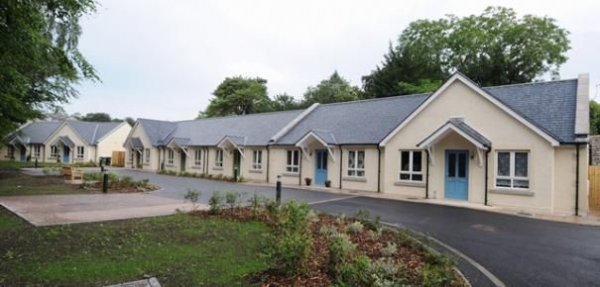Aug 9th 2014, 13:13
-
Last week I chaired a meeting of the Board of Impact Housing Association. It was held at the Oval Centre in Salterbeck – that is the community centre at the heart of the Salterbeck estate. More information about the Oval Centre is on the Impact Housing Association website at: http://www.impacthousing.org.uk/oval-centre

The main items on the agenda were asset management and risk management, both issues that the Homes & Communities Agency has highlighted in its recent review of the regulation of housing associations.
I am getting an increasing number of enquiries from customers including housing associations, local authorities and arms’ length management organisations about advice and training in risk management. There are a number of important aspects to risk management including: Risk Factors; Managing the Risks; Monitoring and Reporting; Risk Strategies; Hierarchies of Risks; Identifying key risks; and the relationship between Risk Management and Financial Planning. If anyone else would like to make an enquiry please contact me atAdrian.waite@awics.co.uk or 017683-52165.
The transitional period for accounting for depreciation and impairment in local authority housing revenue accounts comes to an end in 2017 but concerns are already being expressed by some of my local authority clients about the effect that this will have. During the transitional period depreciation and impairment (writing down the value of council houses on the balance sheet) is not treated as a real cost in the revenue account but after 2017 it will be. This is a very technical accounting issue but I will give a simple example of what it could mean. If a local authority invests in new council housing, the accounting rules say that it should be valued at ‘existing use value for social housing’ (a lower valuation than market value to reflect the fact that the housing is let at social rents). This means that houses that cost £10million to build could be valued at £3million creating ‘impairment’ of £7million that would have to be charged to the housing revenue account and met by the tenants. This matter has been raised with Communities & Local Government who are looking into it. If I hear any more I will let you know!
Last week we published a briefing paper on Local Government Capital Programmes. The purpose of this briefing paper is to provide an overview and summary of local government capital programmes. It considers: a definition of Capital Expenditure, Capital Expenditure and Financing, Grants and Contributions, European funding, Private Finance Initiative, Capital Receipts, Revenue Contributions, Borrowing, The Prudential Code, Treasury Management, Bonds and Balance Sheets.
Your free copy can be downloaded from:https://awics.co.uk/dynamicdata/data/docs/local%20government%20capital%20programmes%20-%20briefing%20paper.pdf
My next speaking engagement is at the National Housing Federation’s Leaseholder and Tenant Service Charges Conference in London on 3rd September 2014. I will speak on:
For more information please see the National Housing Federation website at:http://www.housing.org.uk/events/browse/leaseholder-and-tenant-service-charges
We have four seminars and workshops planned for the autumn of 2014 as follows:
All You Want to Know about Local Authority Finance
Value for Money and Performance Management in Housing and Local Government
All You Want to Know about Local Authority Housing Finance
All You Want to Know about Service Charges in Social Housing
For further information please see: https://awics.co.uk/seminars2014.asp
Last week we published the August edition of the ‘AWICS Housing News’. It includes articles on:
Your free copy can be downloaded from:https://awics.co.uk/dynamicdata/data/docs/awics%20housing%20news%20-%20august%202014.pdf
We also published a briefing paper on ‘The Environment – Willingness to Accept and Willingness to Pay’. In it, Anna Waite argues that willingness to pay and willingness to accept are often used to generate funds needed to mitigate environmental damage. However in a world where everything ultimately boils down to money, she asks whether it is moral to put a price on the environment? The briefing paper can be freely downloaded from:https://awics.co.uk/dynamicdata/data/docs/awics%20housing%20news%20-%20august%202014.pdf
Carlisle City Council has recently decided to invest in the ‘Local Authority Property Fund’. This is a fund managed by ‘Churches, Charities & Local Authorities’ (CCLA) that has invested £131million in property including retail, offices and industrial units. The fund offers a higher rate of return than councils would receive on deposits with the banks and this is the reason why Carlisle City Council has decided to invest. However, the move has been criticised by the opposition on the grounds that the fund invests 42% of its money in London and the Southeast and has made no investments in the Northwest of England, let alone in Carlisle.
Councillor Les Tickner (Portfolio holder for Finance, Governance & Resources, Labour) told the ‘Cumberland News’ that the Council would invest £2million of its capital programme in the fund and expected to get a return of 10%. He added:
“We are getting nothing for our investments at the moment. We used to get about £1.8million a year but now we are getting about ½% it’s more like £200,000… There is no growth in Cumbria. Last year we anticipated the economy growing by 2% but it ended up being 0%.”
I am sure that Carlisle City Council is not the only local authority to face this dilemma: Whether to invest in the local community or invest to achieve the highest return?
The Homes & Communities Agency consultation on changes to the regulatory framework closes on 19th August 2014. The proposals are designed to:
The Agency proposes to revise the Governance and Financial Viability Standard to ensure that registered providers effectively manage the risks within their businesses, and have the appropriate skills and capabilities as demanded by their business. They are proposing to introduce a code of practice for the first time to give registered providers a greater understanding of what is required by the Standard. This consultation also includes proposals for changes to the consents regime to enable transactions between not-for-profit and for-profit providers in a way that protects the taxpayer and changes to the registration criteria.
Prior to issuing the consultation document the Agency produced a discussion document and sought the views of the sector. These were taken account of in the consultation paper and it is expected that the Agency will implement its proposals largely as set out in the consultation paper. However, anyone who wishes to make representations now only has a week to do so!
The Departments for Communities & Local Government (DCLG) and Environment, Food & Rural Affairs (DEFRA) have commissioned consultants to ‘establish whether rural authorities face additional and unavoidable costs in delivering services, compared to urban authorities’ and have stated that ‘the data, evidence an conclusions from the research will form part of the evidence base for future decisions on local government funding’.
When I was Finance Director and then Strategic Director at Copeland Borough Council in Cumbria the relative costs of providing services in rural areas was one of the issues that concerned me, and we did a significant amount of work in conjunction with other local authorities that serve sparsely populated areas to identify our costs and to argue that these should be reflected in the local government funding settlement.
However, I always thought that the ‘rural lobby’ underplayed their hand on calculating these costs as arguments tend to revolve around issues like whether environmental health officers and librarians claim more travelling allowances in rural areas than in urban ones.
I always thought that a stronger argument would run like this:
Of course, many people will argue that any increase in funding for rural authorities would be likely to be at the expense of authorities with higher levels of deprivation. However, there are authorities that are relatively sparsely populated and also suffer significant deprivation. Copeland Borough Council is a good example of this and our argument was that increased resources should be allowed in deprived areas and sparsely populated areas.
Impact Housing Association, of which I am Chair, recently opened a new housing scheme in Kendal. The scheme consists of eight two-bedroom bungalows designed for the over 55s. The bungalows are designed to Code for Sustainable Homes standards and are heated by a high performance gas condensing boiler with a gas saver and have been provided with a mechanical heat recovery and ventilation system to help to save energy.

Noble's Place, Kendal.
The bungalows achieve an EPC rating of 82 with estimated running costs for heating and hot water anticipated to be around £5.60 a week.
The site was a former South Lakeland District Council Parks Department nursery. Originally the site and the adjacent park were donated to the local authority in 1929 by a Mrs. Mary Noble, as a ‘sanctuary of rest for the aged and as a playground for small children’ in memory of her husband, a local doctor. Following consultation with the Kendal Civic Society it was decided to name the development after Mrs. Noble – hence the name ‘Noble’s Place’.
The total scheme costs were £1.3million with £200,000 grant from the Homes & Communities Agency and £161,000 from South Lakeland District Council.
For more information please see the Impact Housing website at:http://www.impacthousing.org.uk/news/new-scheme-opens-kendal
Our first seminar and workshop of the autumn will be ‘All You Want to Know about Welsh Social Housing Finance’ and will be held in Cardiff on 10th September 2014. This is an introduction and overview of this important subject and is equally relevant for local authorities and housing associations. It will address the following questions:
For further information or to make a booking, please see: https://awics.co.uk/walesfin.asp